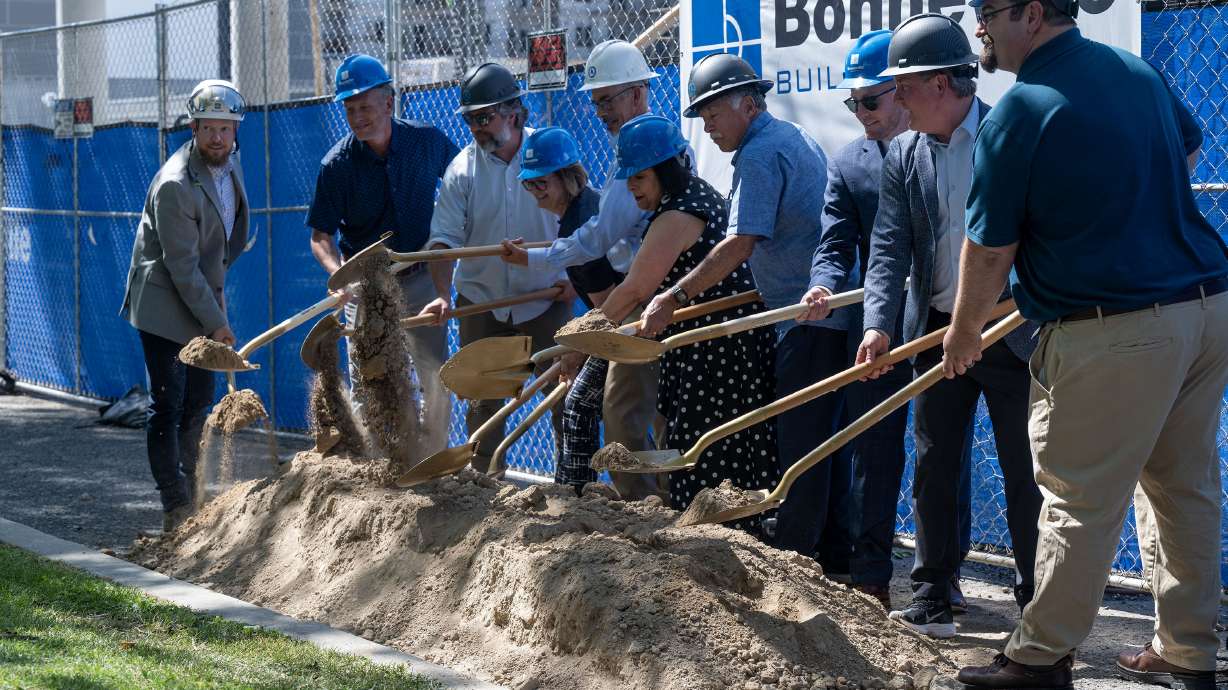- 44 North project aims to address homelessness with 67 deeply affordable housing units.
- The $20 million venture in Salt Lake City involves multiple public and private partners.
- Completion is expected by August 2026.
SALT LAKE CITY — Several housing projects are either underway or recently completed along the North Temple corridor as the thoroughfare continues to undergo a complete transformation.
44 North, located at 44 N. 1000 West, won't be quite as big as all of those, but Shawn McMillen, director of the behavioral health treatment organization First Step House, believes its impact could be just as large once it opens.
The planned 67-unit complex will provide "permanent supportive housing," which is a form of deeply affordable housing for people with serious mental illnesses or other conditions that would make it difficult for them to otherwise access housing.
"The special need population are individuals who have long histories of struggling with homelessness and mental health conditions that complicate their ability to stabilize in the community," he told KSL.com shortly after driving a shovel into the ground Wednesday afternoon to celebrate the project's construction.
Construction of the project began in March, but it took months to get everyone gathered together to celebrate the $20 million project. That's because a project like this required the collaboration of about two dozen organizations, which the project leaders wanted to recognize.
The project is a split venture between First Step House, a residential treatment organization, and Housing Connect, Salt Lake County's housing authority. It received over $11.8 million in federal tax credits distributed by the Utah Housing Corporation, as well as $3.5 million in state tax credits, $5 million from the Office of Homeless Services and $2 million from the Olene Walker Housing Trust Fund, among other sources, according to Salt Lake City documents.
American Express purchased about $13 million of those tax credits, while other lenders also got involved to fund the project. In all, about two dozen agencies, organizations and other entities have also gotten involved in one way or another, which McMillen said is not unusual when it comes to projects of this nature.

It often takes many groups coming together to get affordable housing off the ground because of lower rents collected once it's in service. That's especially true of deeply affordable housing, where few are willing to take on additional tasks associated with permanent supportive housing.
"It's why you don't see these types of projects. It might seem like there are a lot of these kinds of projects, but there really aren't, considering the need," he said. "This is an example of the private sector and public sector working together to address the needs of the citizens of the community."

All 67 units — a mix of one- and two-bedroom options — will be designated for people experiencing disabilities, homelessness or chronic homelessness. It'll come with all of its utilities paid for by the landlord. The project also calls for a community room, gym, on-site laundry and on-site case management services.
It's on track to be completed by August 2026. Once open, it'll join Stratford Apartments, which opened earlier this year, in offering permanent supportive housing in Salt Lake City.
"We know this model works," said Terry Gentry, executive vice president of The Richman Group, a developer tied to the project. "It doesn't just offer a roof over someone's head; it offers a foundation, a chance to rebuild, to recover and to move forward."










